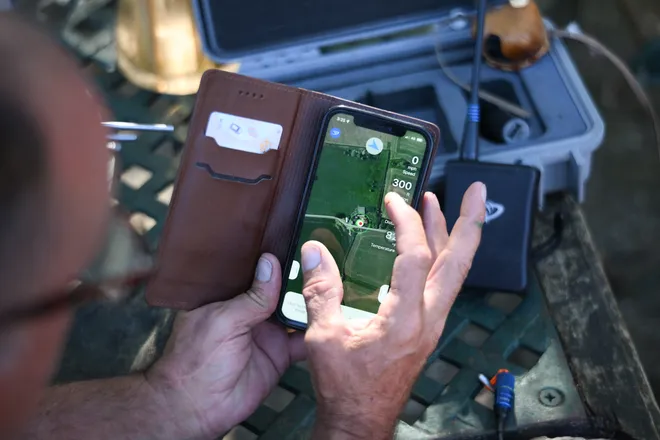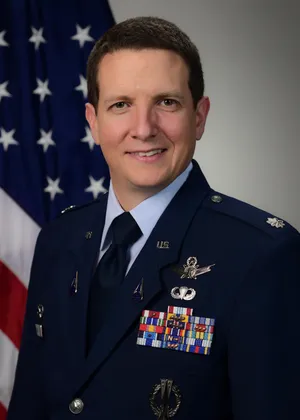Imagine if GPS got lost. We at Space Force worry about it so you don't have to.
Thirty years ago this month marks one of the most significant technological achievements in modern history, an advance that has reshaped our daily lives and our sense of security, and opened the gates to global commerce that even a decade before seemed unimaginable.
On Dec. 8, 1993, the Global Positioning System became fully operational. Now is the proper moment to fully appreciate what GPS provides and acknowledge that even one day without GPS is a scary prospect.
The most obvious downside is also one of the least important: Without reliable GPS it would be far easier for drivers, walkers – anyone really – to get lost. But this marvel of American ingenuity and tenacity is much more. It is the foundation of American commerce, safety and defense.
The timing data GPS provides without fail is the system’s most important capability. It underpins some of the most essential functions of American society. GPS enables electricity from power plants to go to sub stations and to homes, credit cards to be processed at gas pumps, and pumping stations to control pressure of drinking water and wastewater.
In fact, GPS timing enables 14 of 16 of the nation’s critical infrastructure sectors.
As demands increased, GPS grew from 24 satellites to 37
In the continental United States, if you look up, there will be on average 12 GPS satellites overhead, providing navigation data but also timing information. All 37 GPS satellites in the constellation are operated and maintained by the U.S. Space Force.
If GPS went away, the impact would be immediate and drastic.

Countless commercial flights would be delayed. There would be increased costs for most goods and services. There would be delays in accessing your funds from banks and retirement accounts. Shortages would soon occur for goods transported by ship, truck or train.
Even the digitally imposed first-down line on televised football games would go away.
Without GPS shipping would slow to a crawl, since the choreography of ships and trucks transporting imported goods is based on an intricate GPS-derived schedule and GPS-enabled tracking and coordination software.
Something this critical must be protected and safeguarded. Fortunately, it is.
We need democracies and free markets:America must maintain vital leadership on global stage
The Space Force owns and operates GPS, based outside Colorado Springs, Colorado. Working 24/7, a team of Guardians, supported by Air Force airmen and civilians, ensure GPS never fails.
Indeed, in the history of this constellation, GPS has never failed in its mission to provide 100% global coverage, 100% of the time. As demand increased, so has GPS, which grew from 24 satellites to 37 to provide better coverage in dense areas to ensure the service is always there for U.S. and global users.
There are limitations, of course. GPS is not designed to go underground or through steel buildings. That is not a failure. Wi-Fi routers take the GPS signal and rebroadcast the timing element of it to minimize disruption.
Why Space Force is entrusted with protecting GPS
The personnel conducting operations, engineering and maintenance are members of the 2d Space Operations Squadron and are on average only 23 years old.
Our country trusts some of its youngest citizens to provide this foundational capability. These personnel use facilities in Colorado Springs and at five other operating locations to control all 37 satellites, updating precise timing and location information throughout each day.
A veteran's view:Participation in our democracy isn’t just our right – it’s our duty.
For some, having the military build, sustain and operate GPS satellites seems odd, given that 99% of users are civilians. One of the core missions of the Space Force is to protect and defend America’s space assets, like GPS, which is why the Space Force is entrusted with this critical mission.
To be sure, there’s a national security element, too.
America’s adversaries know how much the U.S. military depends on GPS. Imagine if GPS were blocked here in the United States or over a large swath of the earth. The consequence would be significant, which is why this system still is managed by the Department of Defense.
That explains the Space Force’s mission to support a “whole-of-government response” to any GPS threat to the homeland. It’s why the 2d Space Operations Squadron works with the Department of Transportation, Department of Homeland Security and Federal Communications Commission to identify, characterize and halt unauthorized GPS interference – anywhere in America, at any time.

It's no overstatement to suggest that GPS represents America’s global leadership and optimism. President Ronald Reagan declared in 1983 that GPS would be free for all world users after the Soviet Union shot down a civilian airline that accidentally crossed into its airspace. Years later, President Bill Clinton declared GPS would never be turned off to anyone.
Not only is that the law, but satellites launched over the past two decades no longer have the technical capability to be turned off, meaning citizens of the world are able to depend on GPS just like they depend on the sun to shine.
There is almost no activity here or abroad that GPS does not touch. Organizations like U.S. Agency for International Development supply GPS-enabled farming equipment that helps countries feed themselves. The commercial innovations in the United States alone support countless jobs and add more than $1 billion a day to the U.S. gross domestic product. Aircraft, maritime vessels and commercial trucking use less fuel, emit less pollution and are far safer because of GPS.
On Friday, join me in toasting to one of our nation’s most valuable and vital services along with those who imagined this technology, brought it to reality and, with it, transformed America’s way of life for the better.
Lt. Col. Robert Wray is a 17-year Air Force & Space Force officer and serves as commander of the 2d Space Operation Squadron, assigned to Schriever Space Force Base in Colorado. He commands a team of 140 active and reserve personnel who operate and maintain GPS supporting military and civil needs around the globe.
Disclaimer: The copyright of this article belongs to the original author. Reposting this article is solely for the purpose of information dissemination and does not constitute any investment advice. If there is any infringement, please contact us immediately. We will make corrections or deletions as necessary. Thank you.







